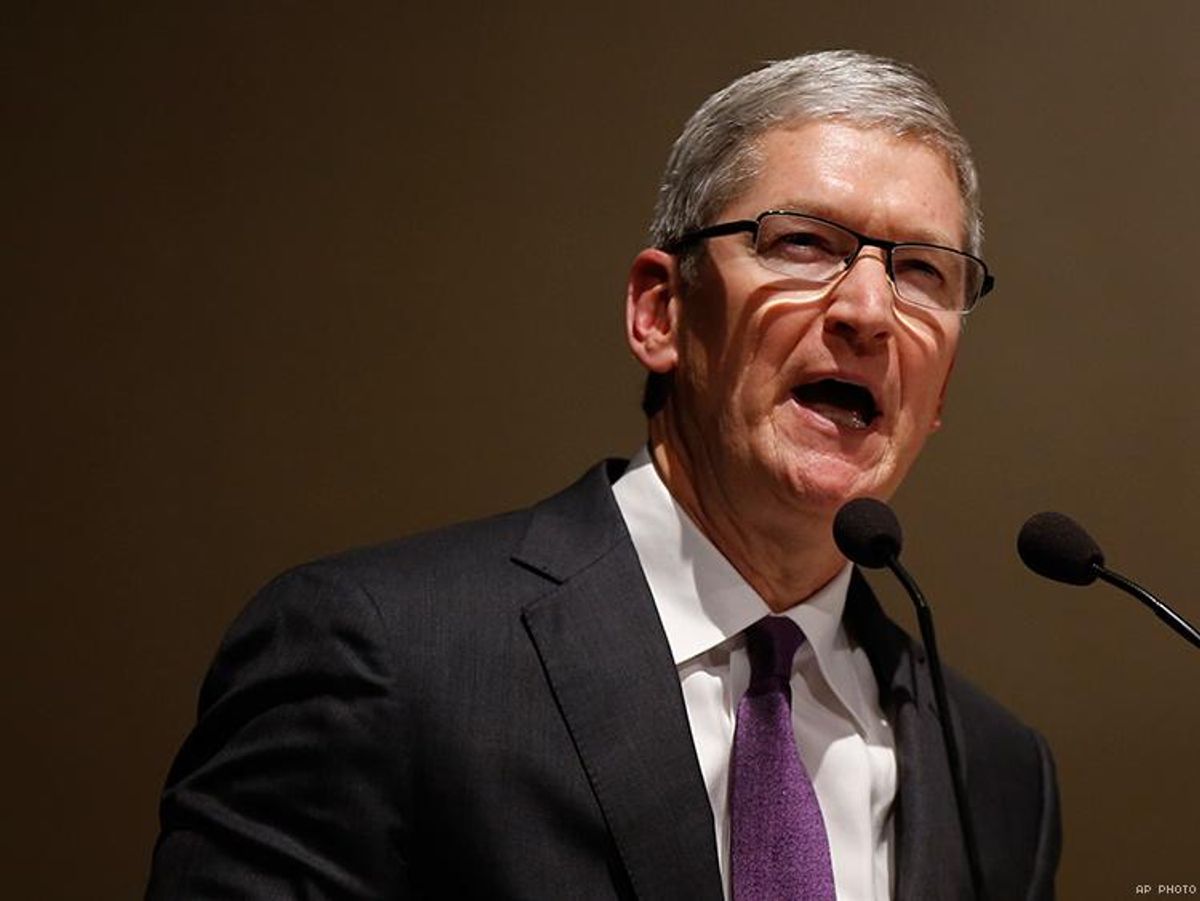Apple CEO Tim Cook felt betrayed when the FBI obtained a court order to force the company to unlock an iPhone.
The device in question belonged to one of the attackers in the San Bernardino, Calif., mass shooting in December, the out executive says in a new interview with Time.
Apple had been assisting the FBI in the case before the suit was filed, Cook told Time reporters in an interview for the magazine's March 28 cover story. The company complied with a warrant by providing "all information that we had about that phone" and "some other metadata" shortly after the December 2 attack, he said. About a month later, the FBI asked for more help with retrieving information from the phone, and Apple offered some strategies, which ended up not working.
"We were helping," Cook said. "We were consulting in addition to passing the information that we had on the phone, which was all the information that we had."
Then the FBI asked Apple to create and install software that would override the phone's security features and provide access to the needed information. Apple officials declined.
"Cook actually thought that might be the end of it," Time reports, but then last month the FBI obtained the court order, which Apple has been fighting. The agency had warned him that it might take legal action, but he thought that if this happened, he'd hear about it directly from the FBI. Instead, Cook heard it from the media -- and that didn't sit well with him.
"If I'm working with you for several months on things, if I have a relationship with you, and I decide one day I'm going to sue you, I'm a country boy at the end of the day: I'm going to pick up the phone and tell you I'm going to sue you," Cook told Time. "And so do I like their tactics? No. I don't. I'm seeing the government apparatus in a way I've never seen it before. ... Do I like them talking about or lying about our intentions? No. I'm offended by it. Deeply offended by it."
There are two primary reasons behind Apple's refusal to create the software, Time reports. One is that it could fall into the hands of hackers who could use it to gain access to anyone's iPhone and interfere with other computer programs, such as those that run the electricity grid and other societal necessities.
Also, if Apple complied, it would set a legal precedent. "Even if Apple deleted the tool as soon as the FBI was done with it, there would be a line around the block of district attorneys clutching iPhones in evidence baggies demanding that Apple write it all over again," the magazine observes.
While this decision has brought Apple substantial criticism, Cook expressed confidence that some good may come out of the conflict. "I think the dialogue that is happening now with a lot of different people and a lot of different viewpoints, people that agree with us and disagree with us, I think it's healthy and it's a part of democracy," he told Time. "So that part I'm really excited about. And I'm optimistic that we'll get to the right conclusion."
Read the cover story here and a transcript of Cook's interview here.













































































